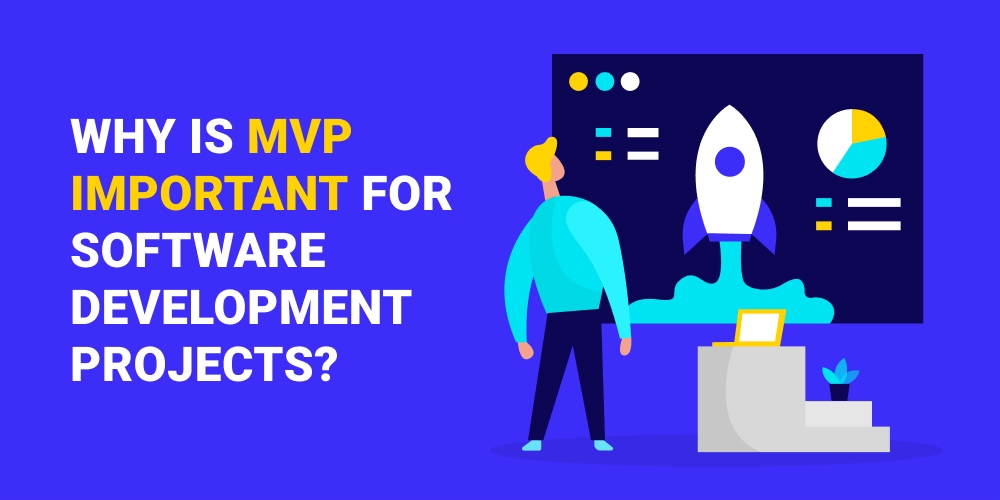The Definition of MVP
MVP software definition stands for a minimum viable product. In other words, it is a functioning product but with a very limited set of features. MVP contains only those features that are obligatory in order to deliver value to its users and there is no advanced functionality in it.
If you need an example, think of a bicycle against a car. Both are means of transportation and both can get you to a target destination. The difference lies in the level of comfort and technological advancement.
Don’t think that an MVP is just a bare carcass though. It still performs all necessary functions but without fancy features that you can see in almost any software application.
Advantages of Using MVP

Getting back to the question, why do more and more companies prefer to start with an MVP for software development?
When following the method of agile software development, MVP allows testing how the product will be received by its users. In this way, you basically test your idea and how good/bad it is. This, in turn, results in significant cost-saving.
Second, you can test how the product functions and whether the implemented functionality was the right choice. As well, you can quickly identify any bugs and errors and remember the risk areas when working on a final product.
Finally, MVP helps saving money and development time. By knowing the pros and cons of your idea, you will mitigate and eliminate possible risks during future product development.
Getting Started With Creating a Minimum Viable Product

Before starting to work on the minimal viable product, it is important to do some preliminary work. This implies doing thorough research on the following:
- Your target audience;
- Competition;
- The pros and cons of your product.
Let’s see each point in more detail and start with the target audience. The research of a target audience is an absolute must as you will base your product on the users’ preferences and needs. It will help you define a USP (unique selling point) of your product and determine the value that it will bring to users. Moreover, the audience research will serve as a base for the future definition of a user flow. This is a customer journey that shows the main points of interaction between the users and the product and is critical when working on the UX/UI and navigation parts.
Next is the research of the competition. It is important to know what’s already available on the market and what may be lacking. You can also analyze how your competition sells its product and consider some of the techniques for your own promotion.
Finally, the analysis of the pros and cons of your product will help you shape the vision of a final product and determine what functionality is needed at an MVP stage. As well, we recommend comparing your idea against the existing products and see where you really stand.
Steps to Developing an Effective MVP

Even though MVP demands a well-structured approach, it’s not that hard to develop it if you follow the development strategy. See the necessary steps below.
Outline the user flow
As said above, you need to outline a user flow in order to create MVP software design, place CTAs, and plan out the navigation of the product. As well, a user flow will serve as a guideline that you can always refer to and check whether you are on the right track.
Choose the necessary features
Though MVP has a very minimal set of features, it doesn’t mean that it should be simple - it should perform the intended functions. In order not to overload the MVP (or vice versa), you need to prioritize the features that you plan to include.
Define the high-priority (must-have), medium-priority (nice to have), and low-priority (can add later) features. This will help you create a solid development project and ensure that your MVP contains all needed functionality.
Find a development agency
Once everything is done, your next step will be MVP development and for that, we recommend finding a service provider to work with.
There are many companies out there that can provide you with an experienced MVP developer. When doing your research on the company, pay attention to its portfolio and don’t hesitate to directly contact it and ask to speak with the team. In this way, you’ll see whether you are comfortable communicating with this specific agency and whether they share your vision and ideas.
Launch and get feedback
When the MVP is all ready, it’s time to launch it and collect feedback from the users. This is a very important stage as it will let you know whether the product is a success or not.
Remember that the first impression matters so double-check everything and make sure the product works properly and there are no bugs and errors. Also, make sure to set the KPIs for collecting the users’ feedback (conversion rate, number of downloads, average time on the website/application, etc.). These KPIs will help you understand how well the product was received and how the users liked it.
The Do’s and Dont’s of MVP Development

When developing an MVP, there are certain do’s and dont’s to keep in mind. We recommend following them if you want to develop your product in a faster and error-free manner.
The Do’s:
- Adhere to set deadlines - it will help you avoid adding extra functionality;
- Choose one user group to target (or you’ll get lost halfway);
- Keep usability in mind - you are doing it for users, not for yourself.
The Dont’s:
- Choose the right problem to solve - don’t focus on too many;
- Do not ignore prototyping;
- Do not add too many features (and don’t keep it too simple).
This was our view on MVP software systems and their meaning to a business. At DashBouquet, we’ve worked with many clients who requested an MVP and we can say that it’s always been a benefit for them. Contact us if you have any questions and we’ll gladly answer them.



